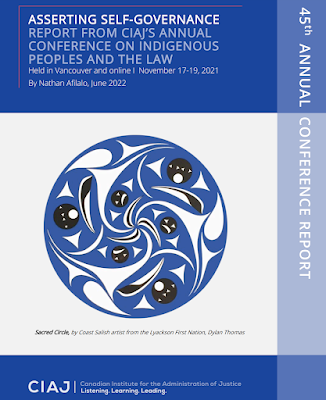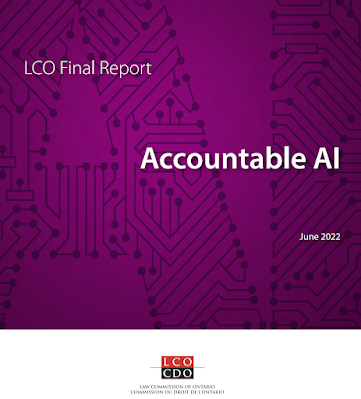Canadian Institute for the Administration of Justice 2021 Conference Report on Indigenous Self-Governnance
The Canadian Institute for the Administration of Justice recently published the report for its 2021 conference on Indigenous Peoples and the Law.
The conference took place in Vancouver in November 2021:
"Over the course of the three days eight panels composed of Indigenous elders, judges, lawyers, academics as well as non-Indigenous legal professionals discussed issues ranging from Indigenous self-governance and legal orders to child welfare and the experiences of Indigenous students in law school. Collectively between in-person and virtual attendance, close to 500 people were able to participate."
"Throughout the various topics discussed and the experiences and wisdom shared a fundamental issue arose: Indigenous self-government. Not a panel passed without its mention. Self-determination was the narrative either from which discussion began or culminated to. The following report reproduces the aspects of Indigenous self-government that were highlighted and reoccurred throughout the conference. Three general areas were covered: the United Nations Declaration on the Rights of Indigenous Peoples as a legal instrument, the legal narratives of Indigenous self-governance, and Indigenous laws and the inherent right to self-governance. The following report turns its attention to these topics."
Labels: aboriginal and Indigenous law, conferences






